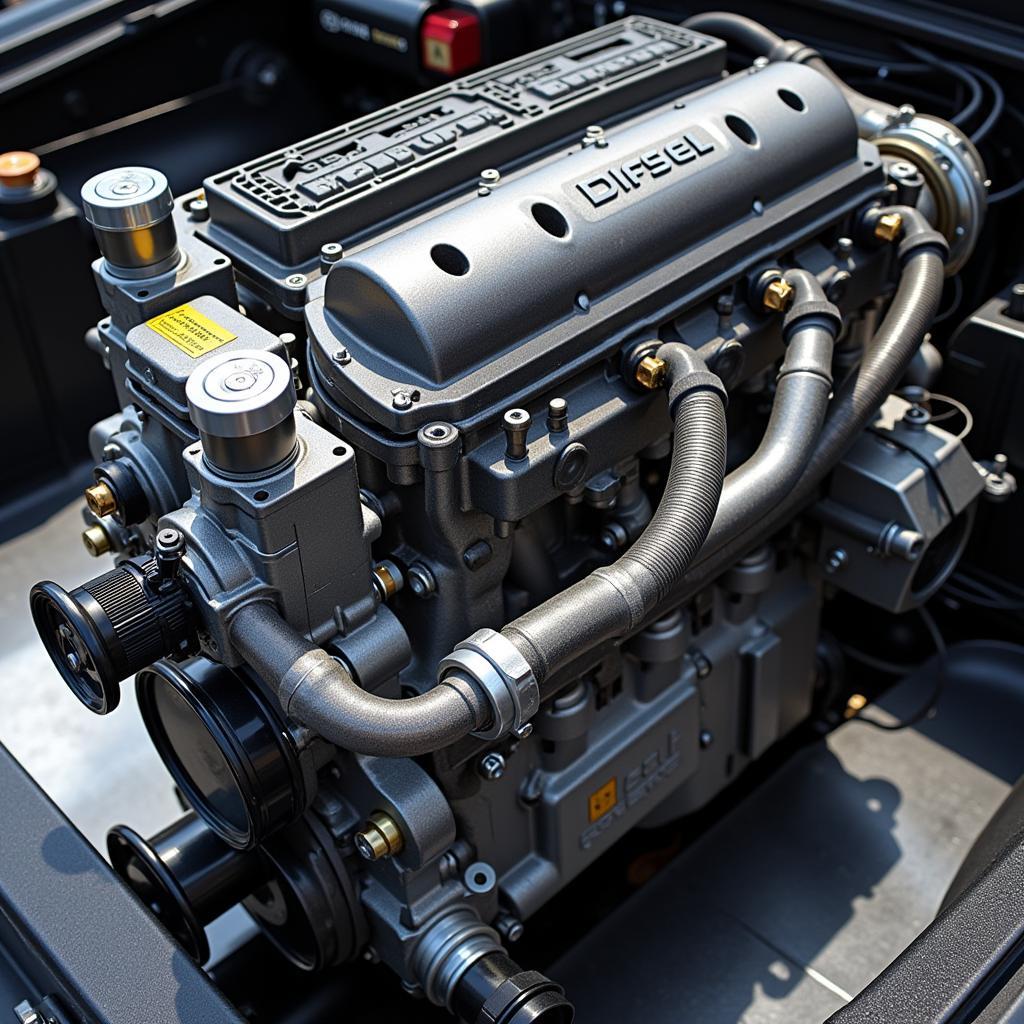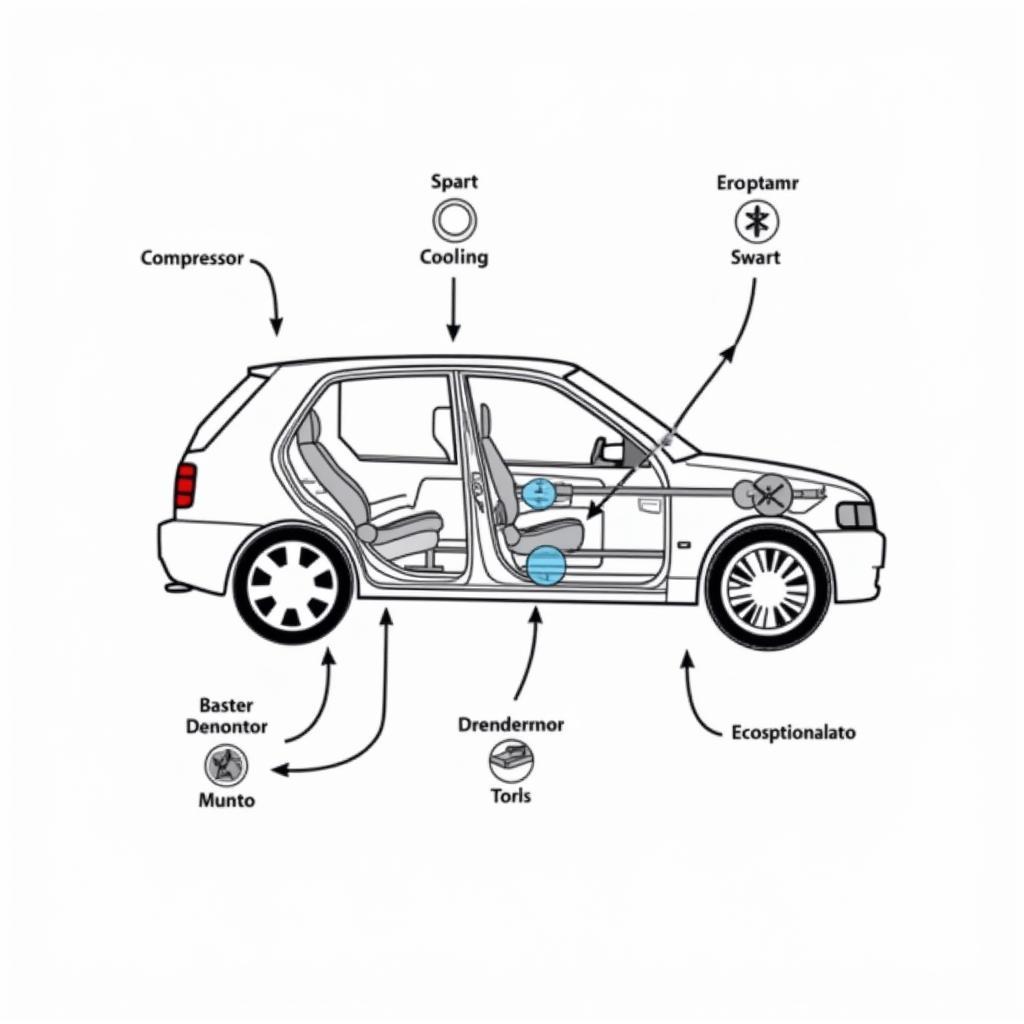How Often Should You Service a Diesel Car?
Diesel cars have a reputation for being durable and long-lasting. However, like all vehicles, they need regular servicing to stay in top condition. Neglecting your diesel car’s maintenance schedule can lead to reduced performance, fuel efficiency, and potentially costly repairs down the line. So, How Often Should You Service A Diesel Car? Let’s delve into the specifics.
Understanding Diesel Car Service Intervals
Unlike gasoline engines, diesel engines operate under higher compression ratios and utilize a different combustion process. This difference, along with advancements in diesel engine technology, necessitates a tailored service schedule. While there’s no one-size-fits-all answer, most manufacturers recommend servicing your diesel car every 6,000 miles or once a year, whichever comes first.
However, this is just a general guideline. Several factors can influence the frequency of your diesel car service:
- Driving Conditions: Frequent city driving, towing heavy loads, or driving in extreme weather conditions can put more stress on your engine, requiring more frequent servicing.
- Driving Style: Aggressive acceleration and braking can accelerate wear and tear on engine components, leading to more frequent service needs.
- Vehicle Age and Mileage: Older vehicles with higher mileage might require more frequent servicing due to the natural wear and tear of engine parts.
- Manufacturer Recommendations: Always refer to your car’s owner’s manual for specific service intervals recommended by the manufacturer.
 Diesel Engine Components
Diesel Engine Components
Essential Diesel Car Service Tasks
Each service appointment for a diesel car typically involves a series of checks and replacements aimed at ensuring optimal performance and longevity:
- Oil and Filter Change: Diesel engines produce more soot than gasoline engines, making regular oil changes crucial. Using diesel-specific oil and filters is vital.
- Fuel Filter Replacement: Diesel fuel often contains more contaminants, making a regular fuel filter change essential to prevent engine damage.
- Air Filter Replacement: A clogged air filter can restrict airflow to the engine, reducing fuel efficiency and performance.
- Coolant Flush: Diesel engines generate more heat, making a regular coolant flush necessary to prevent overheating.
- Brake Inspection and Service: Brakes are crucial for safety, and regular inspections and pad/rotor replacements are essential.
- Tire Rotation and Pressure Check: Proper tire maintenance ensures even wear and tear, extending tire life and improving fuel economy.
 Diesel Car Service Checklist
Diesel Car Service Checklist
Signs Your Diesel Car Needs Servicing
While adhering to the recommended service schedule is crucial, it’s equally important to be aware of any warning signs your diesel car might give:
- Unusual Noises: Excessive engine noise, knocking sounds, or squealing belts can indicate underlying issues.
- Exhaust Smoke: Black, white, or blue smoke from the exhaust can signify problems with the fuel system, engine, or emissions system.
- Performance Issues: Reduced power, difficulty starting, rough idling, or hesitation during acceleration can indicate engine problems.
- Warning Lights: Pay attention to dashboard warning lights, such as the check engine light, as they can indicate various issues.
- Fluid Leaks: Check for any leaks under your car, such as oil, coolant, or fuel leaks, and address them promptly.
“Timely attention to your diesel car’s needs can significantly extend its lifespan and save you from expensive repairs,” says Ethan Miller, a senior diesel mechanic at CarServiceOnline. “Don’t underestimate the importance of regular maintenance and addressing any warning signs promptly.”
 Diesel Car Getting Serviced
Diesel Car Getting Serviced
Conclusion
Regular servicing is paramount for maintaining your diesel car’s performance, fuel efficiency, and longevity. While the recommended service interval is typically every 6,000 miles or annually, various factors like driving conditions and vehicle age can influence this. By following the manufacturer’s recommendations, being proactive about maintenance, and addressing any warning signs promptly, you can ensure your diesel car remains a reliable and efficient mode of transportation for years to come.

